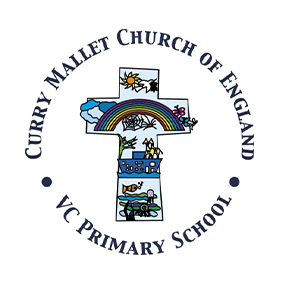History
Curriculum Overview
Intent
For all children to enquire, engage with and understand Britain’s historical past and history of the wider world. For children to develop their curiosity about the past learn to ask questions that will increase their historical knowledge and understanding. For children to understand people’s lives and how their lives have been influenced by actions in the modern world. For children to take part in visits and experiences that will inspire and engage them and bring historical learning to life.
Implementation
History objectives will be taught within an enquiry led project carefully planned to ensure teaching of knowledge, vocabulary and skills that are progressive and planned over time sequentially in order to build progression. We plan cross-curricular links and engaging experiences to bring richness and depth to each project. Projects are planned on a 2/3 year rolling program dependent on the class structure each year. Each term, project homework is set to encourage and support the development of wider links within learning and deeper enquiry and research.
Impact
Children develop their knowledge and understanding of key historical figures, dates and periods of time. Children develop a sense of chronology across British and World history. Children feel confident to ask questions to further their understanding and help to understand key historical concepts, such as cause and consequence, similarities and differences. Children feel inspired to develop their historical enquiry at home or at secondary school.
Planning
Each project is planned using NC objectives for each key stage. Planning of the curriculum is deliberately sequential so that children can make links and can logically build knowledge and understanding of the world and their place in it.
Links to previous and later learning are considered and made explicit to the children to ignite learning. We ensure activities provide opportunities for cross-curricular activities.
The school website has links to our yearly overview planning, which shows the history taught for each class throughout each term. This helps us plan and ensure progression with lessons increasing in depth of understanding and range of knowledge throughout the primary years.
Knowledge and skills progression through the school
Organiser/docs/History_Disciplinary_Knowledge_and_Skills_Progression.pd
Spring Term 2025 Knowledge Organisers
Class 1
/docs/Class_1_Spring_Term_Inventors_knowledge_organiser__1_.pdf
Class 2
/docs/Class_2_Knowledge_Organiser_Spring_Term_2025.pdf
Class 3
/docs/Class_3_Spring_Term_2025_Knowledge_Organiser.pdf
Autumn Term 2024 Knowledge Organisers
Class 1
/docs/Class_1_Autumn_Term_2024_Knowledge_Organiser.pdf
Class 2
/docs/Class_2_Vikings_Knowledge_organiser.pdf
Class 3
/docs/Class_3_Autumn_2024_Victorian_Childhood_Knowledge_Organiser.pdf/docs/Class_3_Autumn_Term_2024_Victorians_Curriculum_Map.pdf
Summer Term 2024 Knowledge Organisers
Class 1
/docs/Class_1_Knowledge_Organiser_Magna_Carta.pdf
Class 2
/docs/Class_2_Summer_Term_2024_Knowledge_Organiser.pdf
Class 3
/docs/Class_3_Summer_Term_2024_Knowledge_Organiser.pdf
Spring Term 2024 Knowledge Organisers
Class 1
/docs/Class_1_Spring_2024_Knowledge_Organiser.pdf Class 2
/docs/Class_2_Spring_2024_Knowledge_Organiser_.pdf
Class 3
/docs/Class_3_Spring_2024_WW2__Knowledge_Organiser.pdf
KS1 pupils will learn about:
- Changes within living memory. Where appropriate, these should be used to reveal aspects of change in national life
- Events beyond living memory that are significant nationally or globally [for example, the Great Fire of London, the first aeroplane flight or events commemorated through festivals / anniversaries]
- The lives of significant individuals in the past who have contributed to national and international achievements. Some should be used to compare aspects of life in different periods [for example, Elizabeth I and Queen Victoria, Christopher Columbus and Neil Armstrong, William Caxton and Tim Berners-Lee, Pieter Bruegel the Elder and LS Lowry, Rosa Parks and Emily Davison, Mary Seacole and/or Florence Nightingale and Edith Cavell]
- Significant historical events, people and places in their own locality
KS2 pupils will learn about:
- Changes in Britain from the Stone Age to the Iron Age
- The Roman Empire and its impact on Britain
- Britain’s settlement by Anglo-Saxons and Scots
- The Viking and Anglo-Saxon struggle for the Kingdom of England to the time of Edward the Confessor
- A local history study
- A study of an aspect or theme in British history that extends pupils’ chronological knowledge beyond 1066
- The achievements of the earliest civilizations – an overview of where and when the first civilizations appeared and a depth study of one of the
- following: Ancient Sumer; The Indus Valley; Ancient Egypt; The Shang Dynasty of Ancient China
- Ancient Greece – a study of Greek life and achievements and their influence on the western world
- A non-European society that provides contrasts with British history – one study chosen from: early Islamic civilization, including a study of
- Baghdad c. AD 900; Mayan civilization c. AD 900; Benin (West Africa) c. AD 900-1300.
Recording
Recording of lessons will take place in project books across all year groups.
Monitoring
Leaders of Learning will monitor planning and work in books alongside leaning walks and pupil voice to understand what the children have learned, enjoyed and the progress they have made.


